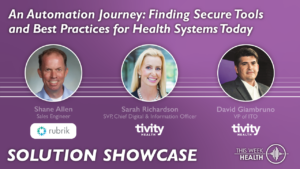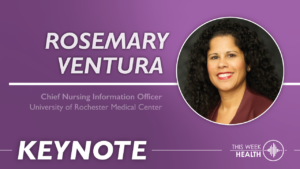


June 5, 2025
Researchers at the Icahn School of Medicine at Mount Sinai have created a machine learning tool named GLUCOSE to improve blood sugar management for ICU patients recovering from heart surgery. Published in NPJ Digital Medicine, the study discusses the difficulty in maintaining stable blood sugar levels, as patients are vulnerable to both hyperglycemia and hypoglycemia. GLUCOSE employs reinforcement learning to provide insulin dosing recommendations based on real-time data, enhancing patient safety and supporting clinician decision-making. Initial tests indicate that GLUCOSE can perform on par with experienced clinicians, but the developers underscore its role as an aid rather than a replacement for clinical judgment.
AI Tool GLUCOSE Revolutionizes Blood Sugar Management in ICU Recovery Mount Sinai
June 4, 2025
The fiscal 2026 budget proposal for the U.S. Department of Health and Human Services includes significant reductions, with a $31 billion decrease from the previous year, bringing the discretionary budget authority to $94.7 billion. The plan proposes consolidating HHS’s divisions from 28 to 15 and reducing its workforce from 82,000 to about 62,000. Nevertheless, the budget aims to bolster enforcement of health information privacy through a newly established Assistant Secretary for Enforcement, which will oversee various units, including the Office for Civil Rights, allocated nearly $237.7 million to enhance its capabilities and manage a backlog of cases. Additionally, the proposal includes $130 million for a Chief Technology Officer role to oversee cybersecurity and health IT initiatives.
HHS Budget Proposal Slashes $31 Billion, Restructures for Efficiency and Security BankInfoSecurity
June 4, 2025
Brad Reimer, Chief Information Officer at Sanford Health, discussed the integral role of artificial intelligence (AI) in healthcare at AVIA’s Digital Innovation Leaders Event. He introduced "Agentic AI," which utilizes automation and machine learning to enhance patient care and address workforce shortages, particularly in rural areas. Reimer underscored the necessity of operationalizing digital strategies to meet rising patient expectations for services like virtual care and remote monitoring, emphasizing the involvement of frontline caregivers in these transformations to avoid potential pitfalls. He also highlighted demographic shifts that necessitate urgent attention to healthcare challenges, particularly for high-needs patients in rural America.
AI Revolutionizes Healthcare: Enhancing Patient Care and Addressing Workforce Challenges LinkedIn
June 4, 2025
Under-resourced healthcare providers, particularly in rural and critical access settings, are grappling with cybersecurity challenges similar to larger institutions but often lack the necessary funding and staffing to manage these risks effectively. Increased scrutiny from policymakers underscores the urgency for improved cybersecurity, yet many small providers prioritize patient care over cybersecurity investments, leading to vulnerabilities. Interviews conducted by the Health Sector Coordinating Council reveal that while these organizations understand the importance of cybersecurity, limited resources and competing priorities are significant obstacles. Key challenges identified include insufficient funding, outdated technology, and difficulties in attracting cybersecurity talent, resulting in a struggle to balance operational needs with the protection against cyber threats.
Rural Hospitals Face Cybersecurity Crisis Amid Resource Shortages TechTarget


© Copyright 2024 Health Lyrics All rights reserved